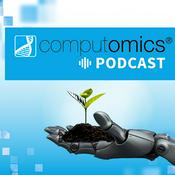This episode of the Computomics Podcast features Vanessa Prigge, potato breeder and R[&]D project manager at Saka Pflanzenzucht (Solana Group). She discusses her international research background, the unique challenges of potato breeding - such as vegetative propagation, complex genetics, and long breeding cycles - and the need for compromise-driven selection. Vanessa highlights two major projects: IPMorama, which promotes integrated pest management through resistant varieties, monitoring, and stakeholder collaboration, and POMORROW, which unlocks potato gene bank diversity for future-proof breeding. Together, these efforts aim to make potato breeding more sustainable, collaborative, and future-ready..
More information:
Solana Main Page
IPMorama Project Website
POMORROW project (German language)
Vanessa on LinkedIn



